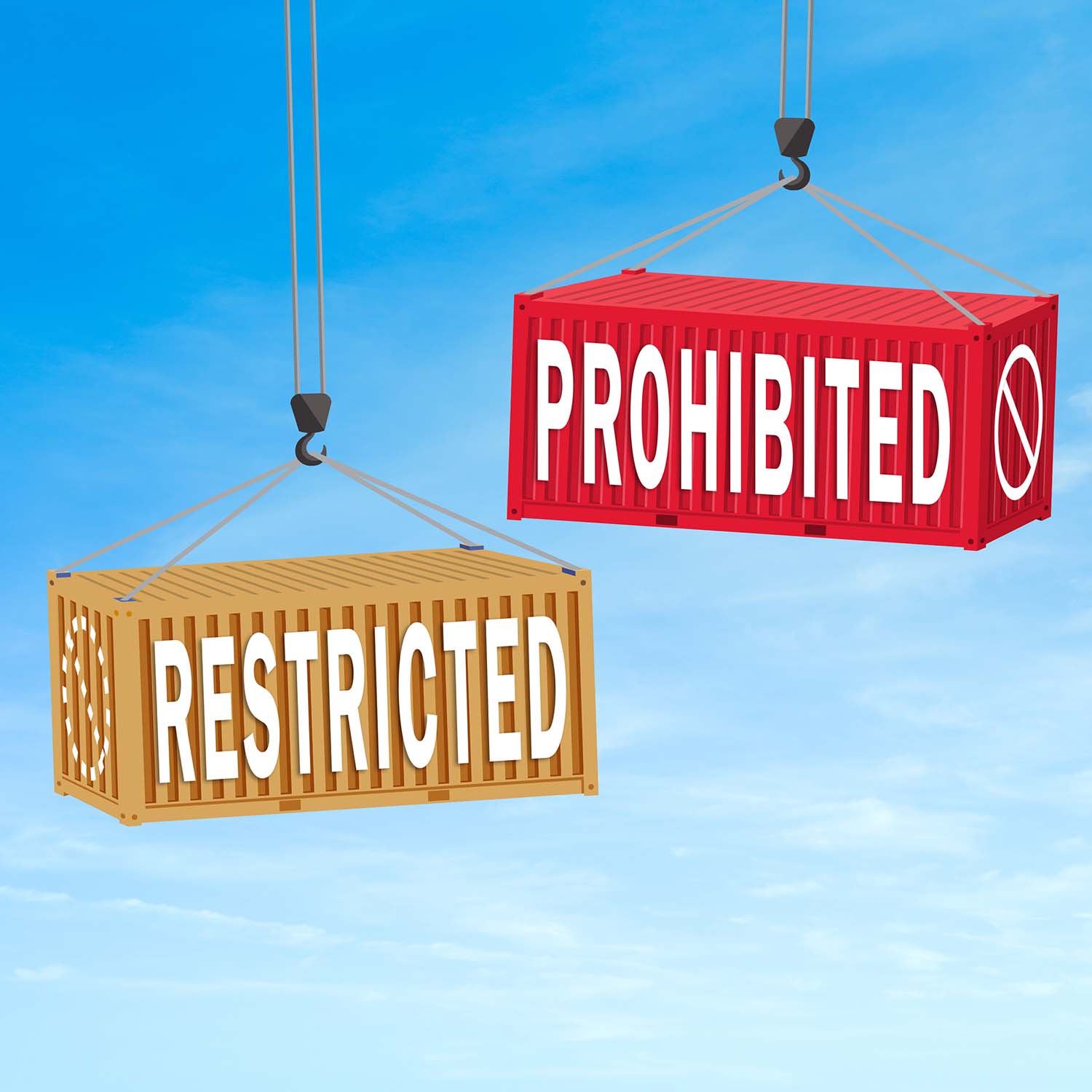Export: Restricted and Prohibited
Restrictions and Prohibitions
All countries restrict or prohibit the import and export of certain articles based upon:
- Concerns for health, safety, and public morality (e.g., foodstuffs, agricultural products, live animals, biologic materials, pharmaceuticals, illicit drugs, chemicals, hazardous products, and materials deemed indecent).
- Protection of the physical and economic security of the state (e.g., arms, armaments, dual-use technology, radio and television transmitters and receivers, radioactive materials, seditious materials, and currency).
- Economic protection or subsidization of domestic industry (e.g., non-tariff barriers to trade for imports and control of natural resources for exports).
- Enforcement of provisions of multi-lateral trade agreements (e.g., those designed to protect endangered and threatened species of animals and plants and those designed to protect copyright, patent, and trademark holders against infringement).
Restricted
Under the Foreign Trade Development and Regulation Act, the government of India published the a list of controlled exports known as the SCOMET list. SCOMET stands for special chemicals, organisms, materials, equipment and technologies. The SCOMET list details items which require additional licenses or permits to be exported. The list is broken into eight categories. Most goods within these categories require additional documentation to be exported.
- Nuclear materials
- Toxic chemical agents
- Micro-organisms
- Materials Processing Equipment
- Nuclear-related equipment and technology
- Aerospace systems
- Munitions
- Electronics, communications devices, sensors, lasers, etc.
Prohibited
- All forms of wildlife, including their parts and products except peacock tail feathers, including handicrafts made thereof, manufactured articles, and shavings of shed antlers of Chital and Sambhar, subject to conditions
- All items of plants included in Appendix 1 of the Convention on International Trade in Endangered Species of Wild Fauna and Flora (CITES), wild orchids, and plants as specified
- Beef
- Chemicals included in Schedule 1 of the Chemicals Weapons Convention of the United Nations
- Exotic birds
- Human skeletons
- Red Sanders wood in any form, whether raw, processed, or unprocessed, as well as any product made thereof
- Sandalwood in any form, but excluding fully finished handicrafts made out of sandalwood and machine-finished sandalwood products
- Tallow, fat, and/or oils of any animal origin, excluding fish oil
- Wood and wood products in the form of logs, timber, stumps, roots, barks, chips, powder, flakes, dust, pulp, and charcoal except sawn timber made exclusively out of imported teak logs/timber, subject to conditions
Note: The above information is subject to change. Importers and exporters are advised to obtain the most current information from a customs broker, freight forwarder, logistics professional, or the local customs authorities.
Article written for World Trade Press by Taylor Holloran, Jennifer Goheen, and Nina Bellucci.
Copyright © 1993—2025 World Trade Press. All rights reserved.

 India
India 